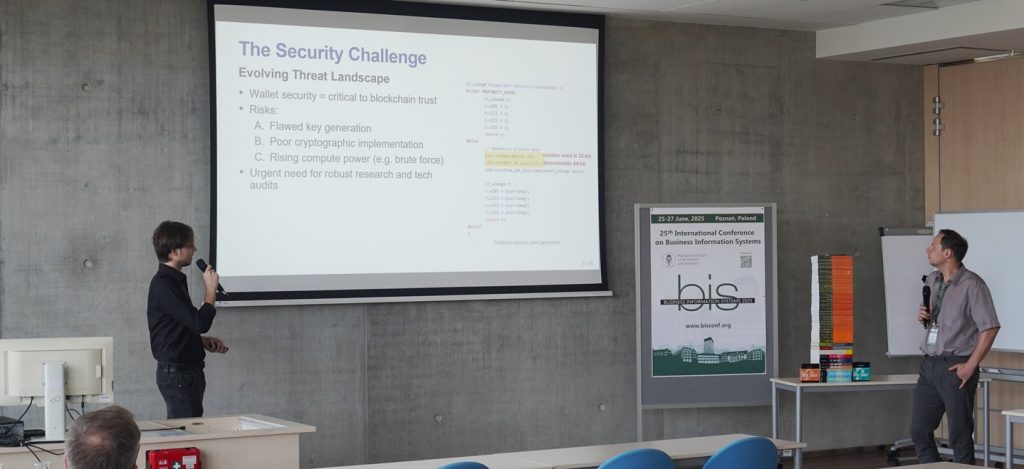
An article by our researchers on the threats to cryptocurrency wallet security in the age of Big Data analytics and quantum computing addresses timely and important issues related to the protection of digital assets. Drawing on real-world cases like the well-known attack on Wintermute, which exploited flaws in the Profanity tool (used for generating so-called “vanity addresses”), the authors demonstrate how even minor weaknesses in random number generation can lead to private key compromise.
Cryptocurrency wallets are a crucial component of any blockchain system – they manage private keys and facilitate interaction with the network, allowing users to securely store and transfer digital assets. The article focuses on Ethereum wallets and explains how their security is based on elliptic curve cryptography (SECP256K1) and the Keccak-256 hash function. However, the authors examine whether advanced technologies – such as Big Data and quantum computing – may pose risks to these foundations.
The article employs Google BigQuery, a cloud-based analytics tool, to process large volumes of blockchain data. The goal was to detect potentially vulnerable addresses and assess the effectiveness of brute-force attacks using GPU-based parallel processing.
A particularly compelling aspect of the publication is its analysis of quantum computing threats. The use of Grover’s algorithm – which theoretically halves the time needed to break a key – shows that this technology may significantly change the relationship between the level of security and the effectiveness of attacks in the future. Although practical implementation is currently limited by several factors (e.g., the lack of powerful and stable quantum computers, and the challenges of implementing cryptographic functions), the threat is no longer purely theoretical.
The study emphasizes that while Ethereum’s address space remains secure under today’s computational capabilities, technological progress demands constant vigilance, analysis, and adaptation of security mechanisms. This is a vital contribution to the discussion about the future of cryptocurrencies in an era of computation on an unprecedented scale.
The paper entitled “Cryptocurrency Wallet Security in the Era of Big Data and Quantum Computing: Brute Force Attacks and Blockchain Analysis with Google BigQuery” was presented at the BIS 2025 conference. Authors of the publication: Patryk Szreder, Dr. Piotr Stolarski.